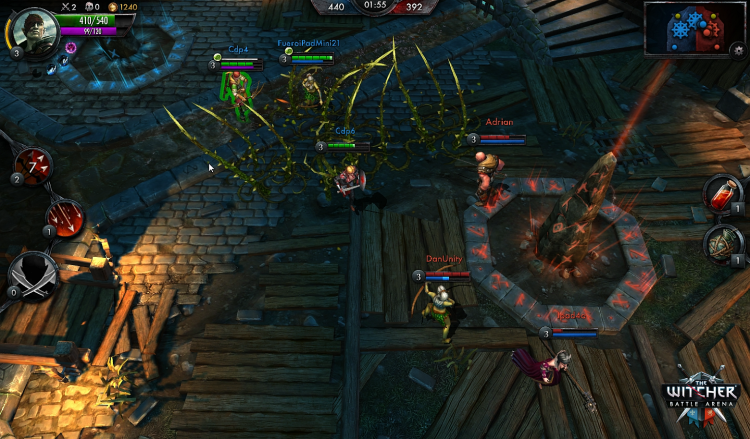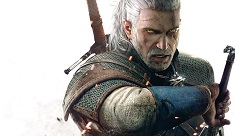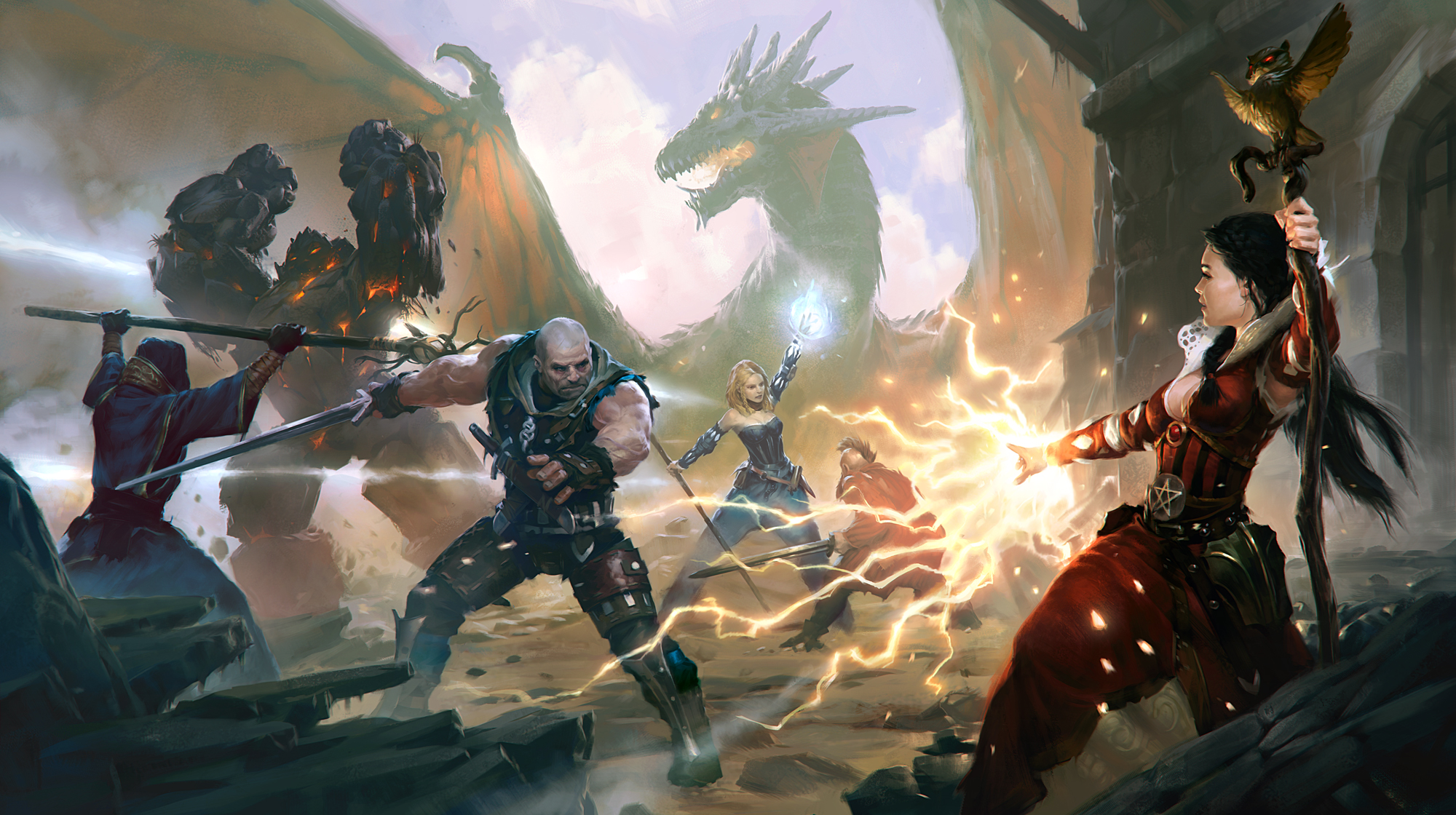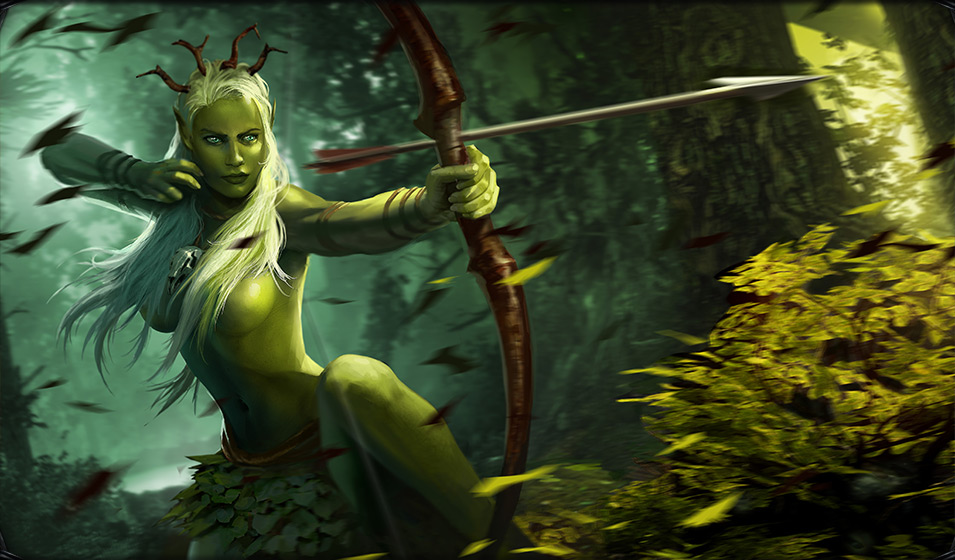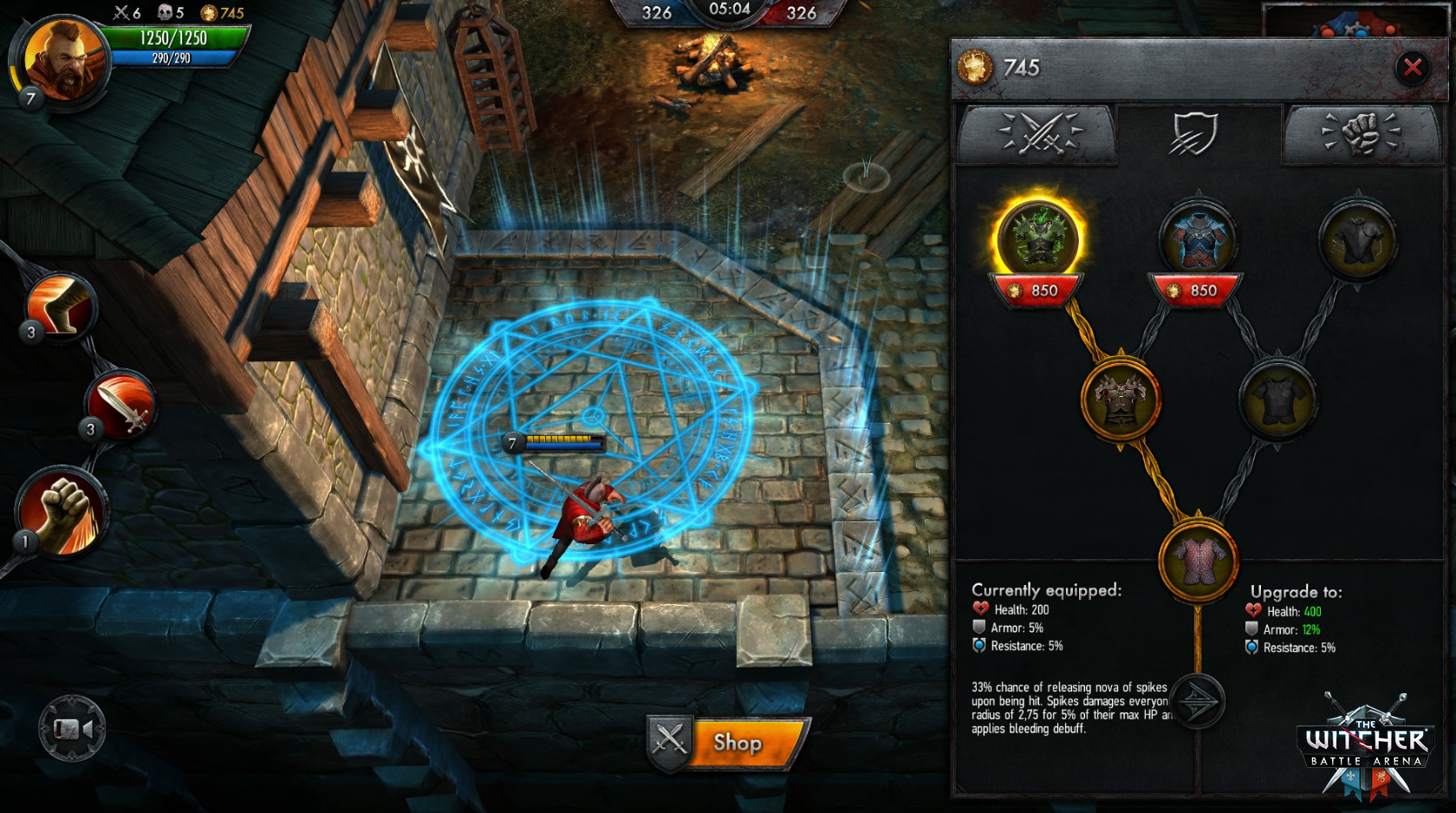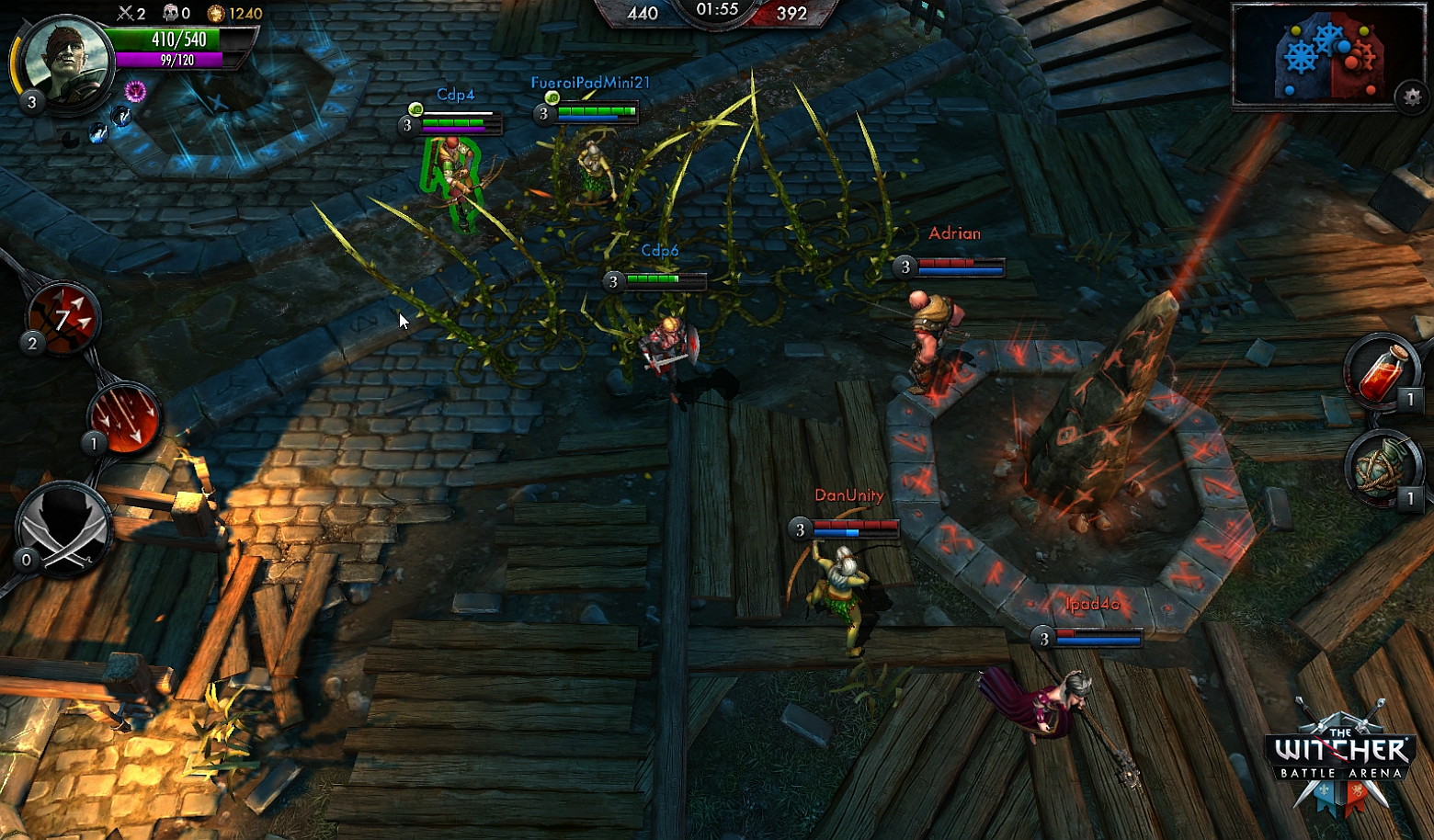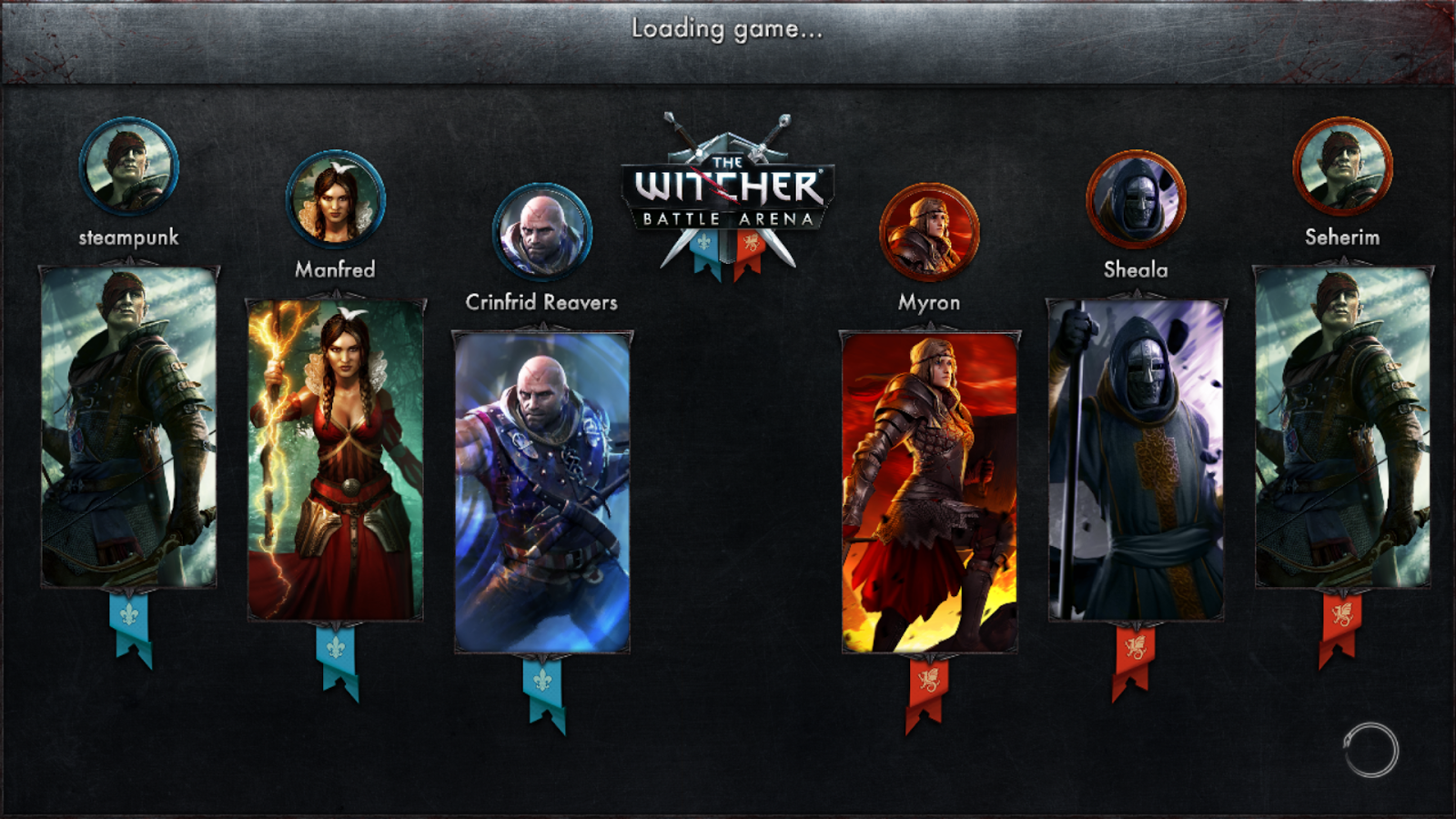The video game industry in Poland is fast becoming one of the most respected and prolific in Europe. GamesBeat spent a week visiting some of the game development and film studios making a worldwide name for themselves. You can read the stories that came out of our visit here, including our in-depth look at the growth of the gaming industry. The Polish government paid for Daniel Crawley’s trip. Our coverage remains objective.
Polish game studio CD Projekt Red has a “golden reputation,” according to Tadek Zieliński. He’s the project manager on The Witcher: Battle Arena, an upcoming mobile off-shoot from the much-loved Witcher role-playing series. It’s a reputation built on years of trying to do right by gamers, including fighting against the controversial digital rights management implemented so doggedly elsewhere.
So why would the big Warsaw-based publisher risk its reputation by making a free-to-play mobile game — something that’s already tainted the rep of many bigger studios?
“Because we want to grow,” said Zieliński. “We want to expand the [Witcher] universe. We want to grow on mobile, and actually that’s something that we had in our strategy for the company. It was put in the strategy in 2011.”
But Zieliński, a veteran of the e-sports and MOBA (multiplayer online battle arena) scenes, knows that CD Projekt needs to tread carefully as it moves to mobile.
“Mobile, MOBA, free-to-play — three points that can topple the reputation if they’re not done properly,” said Zieliński. “Yeah, it’s a risk.”
He then talked me through the cross-platform mobile MOBA — which CD Projekt Red designed and produced and Polish mobile specialist Fuero Games programmed — that he’s obviously passionate about bringing to iOS and Android devices later this year.
And “all three people who are using Windows phone,” later down the line, he joked.
From novels to PC to mobile
The MOBA market is looking pretty tapped-out these days. The biggest problem for new titles is bringing a unique angle that will tempt MOBA players, who tend to stick to one title, to try something new.
“You can’t stick a Witcher sticker on everything, like on League of Legends, on Dota, whatever,” said Zieliński. “Because basically it won’t work.” So CD Projekt Red decided to start from the beginning, deciding what is and isn’t a good fit for mobile and its Witcher brand, based on the fantasy novel series by Polish writer Andrzej Sapkowski.
“We ditched a good 70 percent of what you know in mobile MOBAs,” said Zieliński. “So we don’t have minions, we don’t have towers, we don’t have jungle, we don’t have tower pushing, we don’t have all those mechanics that you usually have in MOBAs. We moved away from that, and we tried to put the arena back into the MOBA.”
Having a genuine reason to offer arena play was a good starting point. The action initially takes place in the arena from The Witcher 2’s Enhanced Edition, which pits the player against hordes of enemies in pursuit of a prize from the emperor.
What happens in the arena this time around is a fast-paced battle for two teams of three, both trying to dominate three capture points. “It’s Domination from Call Of Duty, Conquest mode from Battlefield, Dominion from League of Legends,” said Zieliński.
“When you’re trying to explain people what is MOBA and how you play it, I double-dare you to do it in less than 10 minutes,” he said. “You won’t, probably. This game is explainable in less than a minute.”
To prove the point, he did: “You have your three heroes. You have to take over the objectives on the map. When you take over the objectives you gain points from the enemy. The first team that loses all the point, loses the game.”
Playing on the john
Building a mobile MOBA is very different to making one for PC. For a start, mobile gaming tends to take place in shorter bursts, often in unusual places.
“When you play on mobile, you usually play for, what, 10, 15, maybe 20 minutes tops?” Zieliński said. “I always say you don’t take a crap for 40 minutes.
“Basically that’s why our matches are 5-to-10 minutes long.”
The team tried pitting teams of five against each other, but it didn’t really work out. So instead it has gone for fast 3-on-3 battles that reward the player with pay-outs and drops at the end of each round.
The perils of monetization
CD Projekt Red wants to make everything in the game unlockable without players paying a cent.
“That was really, really important to us because that’s our reputation at stake,” he said. “MOBA on mobile was enough for people to get angry. Monetization — a free to play game? You can imagine … we had our share of tough times, so to speak.”
But Zieliński said that seeing Battle Arena silences the doubters: “They accept it … when they notice that it’s not pay-to-win. It’s actually an RPG, and it’s fun.
“Every single thing you see — heroes, skins, weapons, and inventory — you can unlock via gameplay. Usually, when you play, especially when you play on mobile, you hit a paywall. In most games you have this sad moment when you basically have to throw some money to play. We don’t want that at all.”
But Battle Arena has to make money, so there will be options to buy additional heroes and items with real cash, although everything for sale can also be earned through playing, despite what other mobile experts have recommended.
“We’ve been told, ‘You should have play-to-win … you should have gameplay mechanics connected to monetization,’” said Zieliński.
Who told you that? “I can’t say, but it’s one of the big companies that run mobile in the world.”
The correct way to monetize The Witcher Battle Arena is obviously playing hard on Zieliński’s mind, and he sounded almost apologetic about the fact that CD Projekt Red will include payment options.
“We want to earn some money from the game,” said Zieliński. “We have to pay the developers, we have to create new content, so we want to monetize it. We’re still thinking about options to put in that won’t be in that shady area.”
The toxicity of chat
The Witcher: Battle Arena has a matchmaking system that can pit you against friends, but it’s not going to feature audio chat despite some of the team pushing for it.
“We had fights about it,” said Zieliński. “’We should introduce chat.’ ‘No guys,’ [I said] we shouldn’t introduce chat because I don’t want to have a 12-year-old kid shouting at me on mobile.’”
Instead, it has an emoticon system to communicate with teammates. Zieliński says this removes some of the toxicity associated with playing MOBAs. It’s something he has first-hand experience of, often being the one dishing out grief in the past.
“Most of the MOBAs, they are kind of a social experience,” he said. “I always said that League of Legends is the best way of getting friends and then losing them in a very bad way.
“It took me at least three years to get from the level when I was excited in a bad way about the game. Basically I was angry and emotional. Three years later, I don’t care, but it takes time.”
More to come
The Witcher: Battle Arena launches with eight heroes, two arenas, and one game mode, with more content on the way.
The Witcher franchise has enough depth to bring a diverse range of heroes to the battle, each of which will have their own upgradable skills. Zieliński was initially coy about revealing exactly which heroes from the Witcher universe would be heading to the game postlaunch, but he eventually let up.
“Basically, all the prominent characters from the The Witcher, The Witcher 2, from the Witcher universe, from The Witcher 3 — which will be a huge pool of characters, basically — are coming in February,” he told me. “I can guarantee one thing — [main Witcher protagonist] Gerhalt is coming.”
And CD Projekt Red is working to bring a player-vs-environment mode to the game, which provides for solo play. This will sit alongside a variety of player-vs-player modes, which the design team are currently nailing down. They’ve got a lot of ideas still on the table.
“We were thinking of putting in a pure PvP mode like Deathmatch, actually,” said Zieliński. ”Maybe we will put it back because it was actually kind of fun. It was a little hectic and a little unorganized, but why not?”
Heading beyond mobile
I asked Zieliński if there was a chance that The Witcher: Battle Arena would head to other platforms if it proves successful on mobile. “Other platforms? Yes, maybe, no … I’m not sure,” he said.
“One thing I can assure you, though — no PC. There’s plenty of cool MOBAs already on PC.”
But with gamepad controls already mapped and working for mobile controllers, a move to consoles wouldn’t be completely out of the question.
“We have joypad support,” said Zieliński. “It works really well. Because we will be coming for different platforms — for example, Samsung has their joypad, so they requested us to have support … for all five people who will use their joypads.”
And The Witcher: Battle Arena may have an e-sports future, although Zieliński is adamant that the community will decide if it’s worthy.
“First of all we want to create a game thats fun, accessible, suited for the space it’s placed in, and suited for the players of different skill levels,” he said. “If that will grow to be an e-sport, we’ll be more than happy to support it. We’ll be hosting our own tournaments of course, but it’s not our main focus.”
VentureBeat's mission is to be a digital town square for technical decision-makers to gain knowledge about transformative enterprise technology and transact. Learn More
